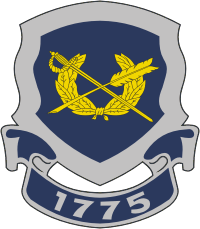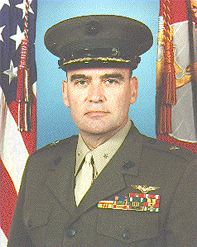Related Research Articles

The secretary of the Navy (SECNAV) is a statutory officer and the head of the Department of the Navy, a military department within the United States Department of Defense.

The Judge Advocate General's Corps, also known as the "JAG Corps" or "JAG", is the legal arm of the United States Navy. Today, the corps consists of a worldwide organization of more than 730 commissioned officers serving as judge advocates, 30 limited duty officers (law), 500 enlisted members and nearly 275 civilian personnel, all serving under the direction of the Judge Advocate General of the Navy.

The Judge Advocate General's Corps also known as the "JAG Corps" or "JAG" is the legal arm of the United States Air Force.

The Judge Advocate General's Corps of the United States Army, also known as the U.S. Army JAG Corps, is the legal arm of the United States Army. It is composed of Army officers who are also lawyers and who provide legal services to the Army at all levels of command, and also includes legal administrator warrant officers, paralegal noncommissioned officers and junior enlisted personnel, and civilian employees.

Earl Edward Anderson was a U.S. Marine four-star general. He was the youngest active duty Marine ever promoted to the rank of general and the first active duty Marine Naval Aviator to be promoted to a 4-star rank. He became Assistant Commandant of the Marine Corps on April 1, 1972. He was promoted to general on March 31, 1972. General Keith B. McCutcheon had been promoted to four-star rank the day of his retirement for medical reasons on July 1, 1971. During his 35-year Marine career, he served in combat actions in World War II, the Korean War, and the Vietnam War.

The Marine Corps Intelligence is the intelligence arm of the United States Marine Corps (USMC) and an element of the United States Intelligence Community. The Director of Intelligence supervises the Intelligence Department of HQMC and is responsible for policy, plans, programming, budgets, and staff supervision of Intelligence and supporting activities within the U.S. Marine Corps as well as supervising the Marine Corps Intelligence Activity (MCIA). The department supports the Commandant of the Marine Corps (CMC) in his role as a member of the Joint Chiefs of Staff (JCS), represents the service in Joint and Intelligence Community matters, and exercises supervision over the MCIA.

Jan C. Huly is a former United States Marine Corps officer who retired on 7 November 2006 after almost 37 years of service. His last role was as Deputy Commandant for Plans, Policies and Operations. Huly currently serves as the President and Chief Executive Officer of the Marines' Memorial Association located in San Francisco, CA.
In the United States Armed Forces, a brigadier general is a one-star general officer in the United States Army, Marine Corps, Air Force, and Space Force.
Kevin M. Sandkuhler is an American lawyer, and retired brigadier general in the United States Marine Corps. His 2003 memo expressing concerns about the US interrogation of terrorism suspects, released in 2005 after a declassification request by Senator Lindsey Graham, received national and international attention.
In the United States Armed Forces, a major general is a two-star general officer in the United States Army, Marine Corps, Air Force, and Space Force.

The Judge Advocate General's Legal Center and School, also known as The JAG School or TJAGLCS, is a graduate-level division federal service academy located on the grounds of the University of Virginia in Charlottesville, Virginia. The center is accredited by the American Bar Association to award the Master of Laws (LL.M.) degree in Military Law. The center educates military, civilian, and international personnel in legal and leadership skills. The LL.M. curriculum includes courses in Administrative and Civil Law, Contract and Fiscal Law, Criminal Law, and National Security Law. The school serves primarily as the U.S. Army's law school for the Officer Basic Course (OBC) for initial-entry Judge Advocates, and as the graduate program for Judge Advocates of all services branches. It is the only ABA-accredited law school that only awards an LL.M. and not a Juris Doctor degree.

Michael C. Wholley is a former General Counsel for NASA and a retired United States Marine Corps Brigadier General.
Major General Clyde J. "Butch" Tate II, USA is an American military lawyer who previously served as the 19th Deputy Judge Advocate General of the United States Army. Major General Tate graduated from the University of Kansas in 1979, receiving a commission through R.O.T.C. as a Second Lieutenant in the U.S. Army. He deferred entry to active duty in order to attend the University of Kansas School of Law. Major General Tate also holds master's degrees in Military Law and National Security Strategy. He attended the Judge Advocate Basic and Graduate Courses, the Army Command and General Staff College, and the National War College.

Flora Diana Darpino is a retired United States Army lieutenant general and military lawyer who was the 39th Judge Advocate General of the United States Army. She was the first woman to hold that position, which she held from September 4, 2013 to July 14, 2017.

Vaughn A. Ary is a retired American major general and the former staff judge advocate to the Commandant of the Marine Corps and director of the United States Marine Corps Judge Advocate Division. Ary was forced to retire from his role of Conventing Authority for Military Trials of Guantanamo Bay detention camp, by a U.S. Federal judge, after five months. Ary currently serves as U.S. Department of Justice as Director of the Office of International Affairs, where he has responsibility for U.S.-initiated extraditions and U.S.-requested deportations.

Major General Thomas E. Ayres is a retired American military lawyer who served as the 20th Deputy Judge Advocate General of the United States Army. On January 18, 2018, President Donald Trump nominated him to become General Counsel of the Department of the Air Force. This nomination was confirmed by the U.S. Senate on February 15, 2018.

John R. Ewers, Jr. is a retired major general in the United States Marine Corps. He was the 19th staff Judge advocate to the Commandant of the Marine Corps.

Daniel Joseph Lecce is an American government official and retired United States Marine Corps major general acting director of the Defense Counterintelligence and Security Agency. As a Marine, Lecce was last the Staff Judge Advocate to the Commandant of the Marine Corps from July 2018 to August 2021. He was previously assigned as the Assistant Judge Advocate General for Military Justice of the United States Navy, senior legal adviser to U.S. Southern Command and general counsel for II Marine Expeditionary Force. His retirement ceremony was held on September 30, 2021.
References
![]() This article incorporates public domain material from Military Occupation Specialties Manual (PDF). United States Marine Corps.
This article incorporates public domain material from Military Occupation Specialties Manual (PDF). United States Marine Corps.
- ↑ Biography for Vaughn Ary on USMC website
- ↑ 2014– "Staff Judge Advocate to the Commandant". Archived from the original on 2014-09-08. Retrieved 2014-09-08.
- ↑ 🖉 "Major General Daniel J. Lecce". www.hqmc.marines.mil.
